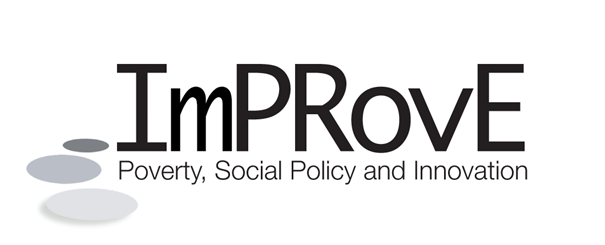TÁRKI Social Research Institute (Hungary)
Address:
Hungary
1112 Budapest
Budaörsi út 45
Email:
tarki@tarki.hu
Phone:
+36 1 309 7676
Organisation:
TÁRKI Social Research Institute was founded in 1985 as an employee-owned, nonpartisan research centre. The institute conducts applied social research on a wide range of issues related to social stratification, labour markets, income distribution, intergenerational transfers, tax-benefit systems, consumption and lifestyle patterns and attitudes. TÁRKI places a strong emphasis on comparative analyses and provides expertise to national and international policy makers on European social structure, income distribution, social mobility and attitudes as well as on the operation of national social welfare regimes.
Tasks assigned:
TÁRKI will be responsible for work packages 10 and 12 as well as for the dissemination of results (in collaboration with RUW).
Previous experience:
TÁRKI carries out biennially the TÁRKI Household Monitor Survey and produces annual reports on European income distribution trends within the framework of the Social Situation Observatory – Network on Social Inclusion and Income Distribution. In 2008 TÁRKI published its first of a series of European Social Reports that analyse demographic, labour market and income distribution trends in all 27 EU Member States using data from EU-SILC. Most recently, TÁRKI has completed a study on child poverty in the EU for DG Employment.
Staff involved in the project:
PhD in Sociology, is Senior Researcher at TÁRKI. His main research interests are fertility effects of intergenerational transfers, cost of children, work incentive effects of family policies, poverty (especially child poverty) and income inequality. He coordinated the Study on child poverty in the EU (commissioned by DG EMPL) in 2009 and coordinated TÁRKI’s contribution to WORKCARE (FP7).
MSc in Applied Economics (with a specialisation in demographic economics) and a PhD in Sociology, is senior researcher at TÁRKI. His main research interests are income distribution, private and public intergenerational transfers, and redistribution. He regularly lectures on social policy at the Corvinus University and participates/has participated in numerous international research projects such as the “European Observatory on the Social Situation – Network on Social Inclusion and Income distribution”; “National Transfers Accounts project of the National Institute of Aging”; and “Millennium Development Goals” country report on Hungary (UNDP).
MSc in European Social Policy at the London School of Economics and PhD in Applied Economics at the Autonomous University of Barcelona. She is Assistant Professor (in tenure-track) at the Department of Economics at the University of Girona. Her main research interests are the Economics of Poverty and Inequality, Economics of the Family, Labour Economics and Applied Microeconometrics. She has published in journals such as the Review of Income and Wealth, Stata Journal, SERIEs – Journal of the Spanish Economic Association or Demographic Research.
Research assistant and doctoral candidate at Karlsruhe Institute of Technology (KIT) in Karlsruhe (Germany). Collaborating with TÀRKI since summer 2012 and working on WP9 of the ImPRovE project since early 2014. Her M.A. thesis at the University of Mannheim dealt with the development of poverty risks in the EU throughout the crisis, comparing floating measures with anchored ones. Her dissertation deals with the comparison of wage inequalities and poverty in Germany and the USA. Fields of interest are social inequality and poverty, educational and ethnic inequalities, methods of empirical social research

